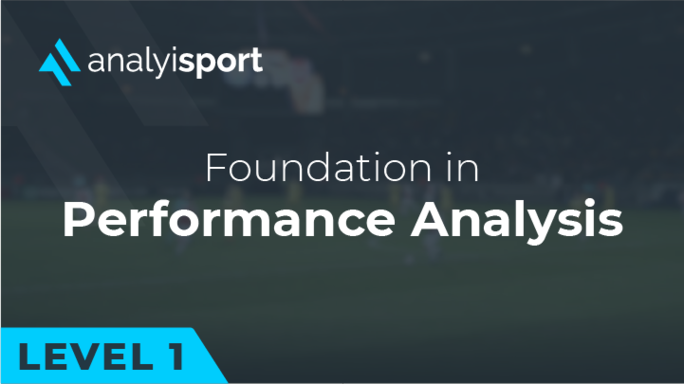What is UEFA?
What is UEFA?
UEFA is the governing body of European football, and their job is to oversee various competitions, as well as promote the growth and development of the sport.
UEFA is an abbreviation for “Union of European Football Associations”. They are one of six continental governing bodies for association football.
UEFA and its Values
UEFA is currently operating under a specific strategy in a mission for driving “positive change in society”.
This strategy consists of five key pillars which are
Football
Trust
Competitiveness
Prosperity
Responsibility
UEFA wants to promote a football culture, which is inclusive to all, regarded with respect and the highest ethical standards. Their strategy consists of promoting and developing football infrastructure across Europe, and ensuring football in Europe is accessible to all.
They want to continue to support the advancement of national football associations, and provide leadership to these associations going forwards.
Whilst promoting unity and diversity in European football, UEFA also want to continue to ensure their competitions are “competitive and meaningful”.
The main responsibilities of UEFA and their strategy going forwards are helping to achieve UN sustainable development goals, guaranteeing safety of everyone involved, maintaining respect as their overarching value, encouraging inclusivity and offering economically viable and sustainable programmes for the future generations.
History and Significance of UEFA
UEFA was inaugurated on 15th of June 1954 Basel, Switzerland after consultation between the Italian, French and Belgian football associations.
The founding associations were made up of 31 members, which became 50 by the mid-1990s.
UEFA has made some significant contributions to European football, mainly in the way of elite competition. This includes the forming of the UEFA European Championship, the UEFA Champions League and the UEFA Women’s Championship.
There is a significant focus on the development of grass roots football and its importance to the game, with UEFA President Aleksander Ceferin’s plan “to build short, medium and long term strategies to ensure football remains the most popular sport in Europe for generations to come”.
Geographical areas covered by UEFA
UEFA currently has 55 member associations, from various countries across Europe. These members are from all over Europe, from Finland (Northern Europe) to Greece (Southern Europe). These nation members show the diversity UEFA strives to promote. Involving many different cultures and traditions.
UEFA Champions League
In 1955, the first edition of the UEFA Champions League took place under the name “Coupe des Clubs Champions Européens”, French for European Champions Clubs Cup.
However the competition took on the UEFA Champions League name in 1992, after adding a “round robin” group stage in 1991.The format of the Champions League begins with the qualification, this can be obtained in two ways. Direct qualification is awarded to certain teams based on their league positions from their respective nations.
The other qualification method is through a “round robin” group stage between two streams of teams that did not gain direct qualification.
These are made up from other qualifying teams, who are their nations league winners, as well as teams finishing second or third in their national league (dependent on their nations representation numbers).
It is decided how many teams can be entered from each association by the UEFA coefficients. These are generated by the results of clubs representing each association over the past five seasons of European football (Champions League, Europa League and Europa Conference League).
This then moves into the start of the actual tournament, dividing 32 teams into eight groups of four. Each team plays each team twice (home and away), gaining three points per win, one point per draw and no points per loss.
The top two teams from each group then qualify for the round of 16 knockout phase, which wittles down round by round eventually reaching the Champions League final.
There has been recent controversy over expansion proposals for the UEFA Champions League, going from 32 to 36 teams.
This has led to debates on “how the extra four places should be awarded and how many group games each team should play”. UEFA has proposed a new “swiss model” format that would see 36 teams compete in a single league, playing eight or 10 matches against different opponents based on seeding.
This guarantees teams a minimum of eight games.
Growth of UEFA European Championship (EUROS)
1960 was the first edition of the UEFA European Championship, then known as the European Nations Cup.
This tournament was and is still held every four years (not coinciding with the FIFA World Cup). Year on year the tournament has grown, gaining more entries for qualification and expanding from 4 teams in the tournament, to 8 teams, to 16 , and then to 24 as we see today.
This competition gave nations in Europe who were unable to qualify for the FIFA World Cup, the chance to play in a competitive national football format and represent their country.
By allowing these nations to compete in an elite level competition, it can promote talent from other nations that may not necessarily have had the chance before.
This is now becoming more prominent, as more and more European talents are coming from all over Europe, rather than just the “bigger” nations, due to other European countries having the platform to showcase their ability.
The 17th edition of the UEFA European Championship will take place in Germany, 2024.
Development of Women’s Football
After multiple failed committees, not being able to launch or organise any international competitions, UEFA founded the Women’s European Championship in 1982.
The first competition took place in 1984, being won by Sweden. This competition has taken place every four years since starting, and its 14th edition will be played in 2025, in Switzerland.
The growth of Women’s football continues to develop after each tournament, increasing participation levels and commercial interest in Women’s Football.
Since England’s success at the 2022 Euros the growth of Women’s football has continued to develop with increased interest in the Women’s Champions League and Domestic Leagues.
In England Sky Sport has seen average audiences of the WSL (Women’s Super League) increase from 111k in the 2021/22 season, to 220k in the 2022/23 season, almost double the viewing. The BBC have seen average audiences increase from 393k in 2021/22, to 522k in 2022/23 and have continued their coverage of the Women’s Super League.
UEFA state they are looking to continue to drive participation, develop the game and transform competitions within Women’s football. As well as increase visibility and commercial value for the game. In 23/24 the UEFA Women’s Champions League will be shown behind a paywall for the first time, with the broadcaster DAZN paying the rights to “accelerate the value” of the women’s game
UEFA Financial Fair Play Regulations (FFP):
The UEFA Financial Fair Play Regulations also known as FFP, are a set of regulations which prevent top European clubs spending more money than they earn.
This is an attempt to stop “financial doping” from rich owners taking over “smaller” clubs who do not match the revenue that their owners could spend.
Rules to being under the UEFA FFP regulations were agreed in 2009, before becoming active in the 2011-12 season.
Focus has mainly centred around whether clubs are allowed to have losses.
“To be exact, clubs can spend up to €5million more than they earn per assessment period (three years). However it can exceed this level to a certain limit, if it is entirely covered by a direct contribution/payment from the club owner(s) or a related party. This prevents the build-up of unsustainable debt..
The limits are:
- €45m for assessment periods 2013/14 and 2014/15
- €30m for assessment periods 2015/16, 2016/17 and 2017/18”
Source: UEFA
Challenges for UEFA: European Super League
A proposal for a European Super League, proposed and founded in 2021, wants to have “the best clubs, the best players, every week”.
This league was created by a commercial enterprise and wants to rival UEFA competitions such as the UEFA Champions League.
However in 2021 when the announcement for these plans was made public, it was met with extreme responses from fans, players, managers, and other clubs in England that were not being considered for the Super League.
Concerns were voiced over the lack of competition within the ESL, and it being more of a beneficiary to making money. It was also highlighted that the ESL could overshadow national leagues in Europe, which is where a lot of other clubs not proposed for the ESL were disgruntled.
In order to voice their opinion and make a strong statement, UEFA stated that players who would compete in this ESL competition would then be unable to participate in UEFA’s competitions such as the EURO’s (as well as the World Cup held by FIFA).
This, along with the backlash from all corners of the footballing community, saw the demise of the ESL as they announced they were “suspending its operations” in April 2021.
Related Courses:

- Level 1
- Course
Level 1: Foundation in Recruitment Analysis in Football
£70.00
Share this article
Our Learning Pathways
AnalyiSport is for everyone who is passionate about analysis in football. Where are you in your development journey?
Become a Football Scout
As more clubs than ever look to build data into their recruitment process, an understanding of recruitment analysis is your ticket to success in the game.
Related Articles
Our team provides news and insights from the cutting edge of football analysis.






